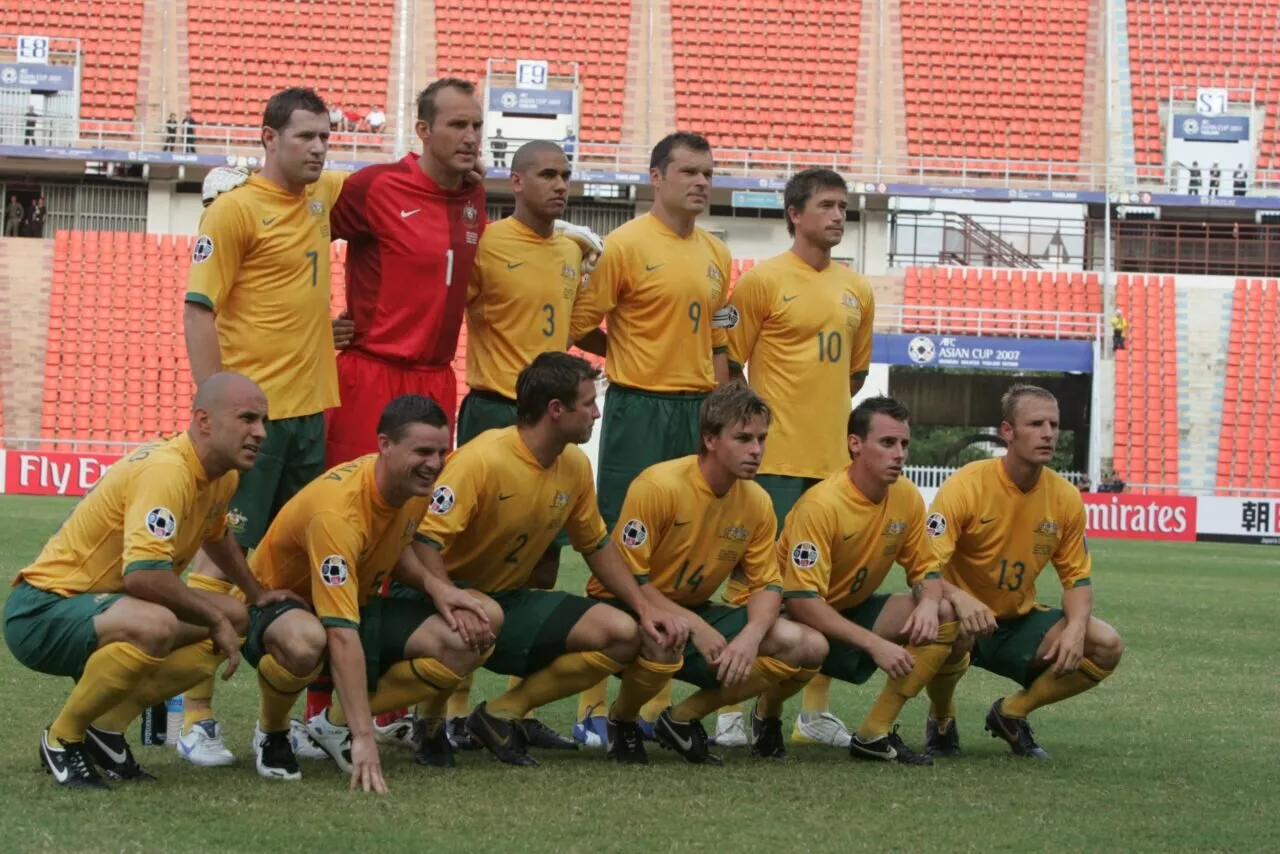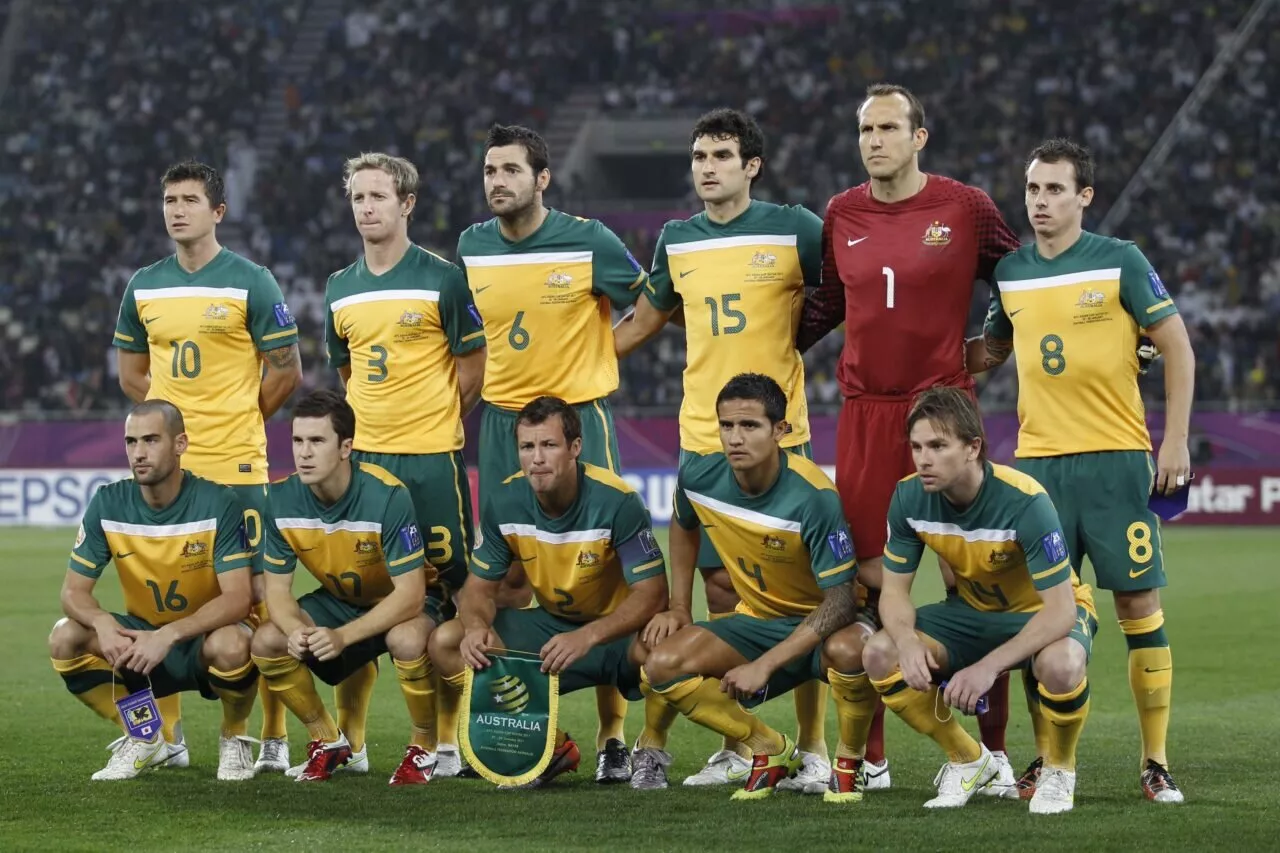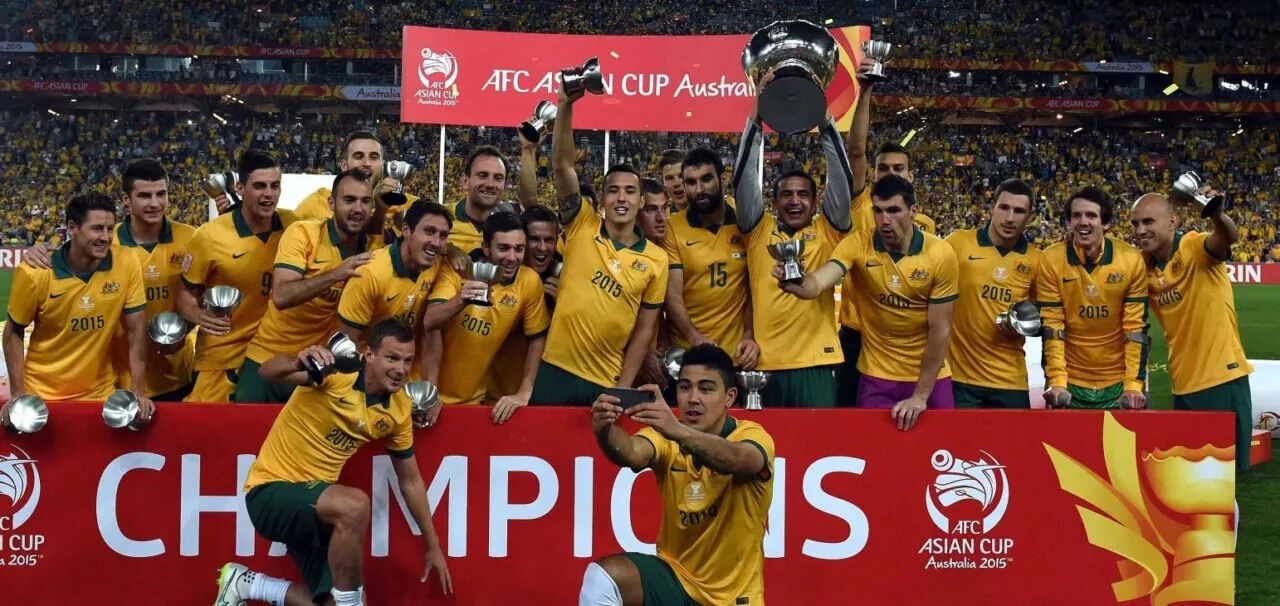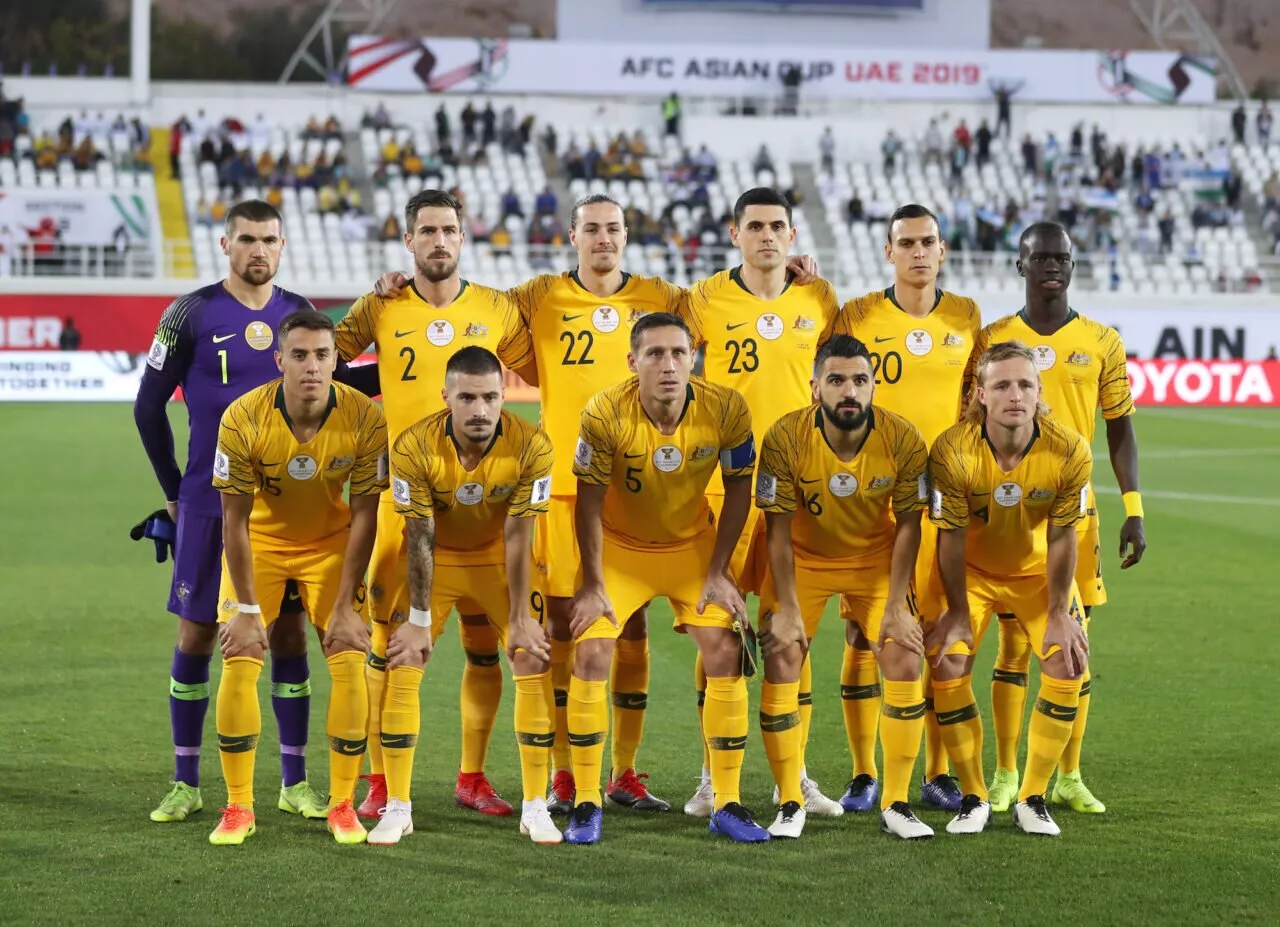How India's AFC Asian Cup 2023 opponents have fared in past editions: Australia

Australia won the 2015 edition of the AFC Asian Cup.
The AFC Asian Cup 2023 draw was made on Thursday. India have been placed in Group B, in what will be a challenging set of games. The Blue Tigers will face Australia, Uzbekistan and Syria in the group stages. All three teams are ranked higher in the FIFA rankings and have a lot of history in this competition.
Australia are, of course, among the top-seeded sides in the AFC and former winners of the competition. Uzbekistan are known for being a powerhouse of a national team, while Syria can be a tough nut to crack as well. It’s quite clear that India will need to be extremely well prepared to survive in this group and make it through to the knockout stages.
But what is the kind of threat they face in the group stages? Well, all the three teams they’ll play against have a lot of experience in the AFC Asian Cup. So let's look at how India’s upcoming opponents Australia have fared in the past AFC Asian Cup editions.
Australia
Australia only became a member of the AFC in 2004. Prior to that, they used to play for OFC (Oceania Football Confederation) and won four editions of the OFC Nations Cup. They opted to join the AFC to improve their competitiveness and have played in every single AFC Asian Cup edition since 2007.
2007
In their debut edition in 2007, the Socceroos went all the way to the quarter-finals. They were placed in a pretty challenging group alongside Iraq, co-hosts Thailand and Oman. After drawing their first-ever AFC Asian Cup game (thanks to an added-time equalizer from Tim Cahill), the Socceroos lost their second game to Iraq.

However, they came up clutch against Thailand, picking up a huge 4-0 win which helped them move into the quarter-finals as the second-best team, thanks to a superior goal difference. Australia's journey ended here, albeit in defiant fashion. They forced the game against Japan to go all the way into the penalty shootout, where Lucas Neill and Harry Kewell's penalty misses saw them knocked out.
2011
In 2011, Australia bounced back strongly and things went way better for them in Qatar than how they did in the previous edition. They topped their group, which included their infamous 4-0 win over India - which could've been much worse if not for the sensational goalkeeping from Subrata Paul - which even earned praise from Tim Cahill.
Australia also defeated Bahrain in the group stages and played out a fighting draw against South Korea, helping them top the group and move onto the quarter-finals in dominant fashion. The Socceroos had a tough fight against Iraq in the quarters that was dragged to extra time. However, a goal from Harry Kewell helped them unlock Iraq and get a move.

The Aussies absolutely dominated Uzbekistan in the semi-final, picking up an incredible 6-0 win - which remains among the highest-deficit wins in the history of the AFC Asian Cup semi-finals. Australia, however, tasted defeat in the final against Japan - with Tadanari Lee's winner in extra-time helping them win it.
2015
After being able to host the 2015 edition, Australia made their home advantage count. They were placed in a tough group with South Korea and Oman, but gritted their way to the quarter-finals. Wins over Kuwait and Oman in the group stages helped them move forward as the group runners-up.
The Socceroos impressed in the quarter-finals against China, with a brace from Cahill being enough to help them move onto the semi-final. Australia met a resilient UAE side in the semis, knowing that they had eliminated defending champions Japan in the previous round.
Australia defeated them 2-0, with goals from Jason Davidson and Trent Sainsbury. In the final, they met a South Korea side that had already defeated them in the group stages. The match itself was a really topsy-turvy encounter with a lot of drama.

Massimo Luongo gave the hosts the lead in the 45th minute and Australia seemed to be destined to win it as the game neared its end. However, Son Heung-min scored a dramatic equalizer in the 91st minute to force the game into extra-time. Australia however, were not to be undone on the day. A winner from James Troisi in the 105th minute was enough to help the Socceroos win their first-ever AFC Asian Cup title.
2019
Australia headed into the 2019 AFC Asian Cup edition as the defending champions. They were placed in the same group as Jordan, Palestine and Syria - which on paper seemed to be pretty comfortable for Australia. However, the Socceroos got a reality check and lost their opening game against Jordan.
They bounced back after that, with hard-fought wins over Palestine and Syria to move into the Round of 16. They faced a tough fight against Uzbekistan in the Round of 16, being unable to score past them in 120 minutes. Matt Ryan's heroics, however, helped them win on penalties.

Australia's journey ended in the quarter-finals when they lost to UAE, thanks to a goal from Ali Mabkhout. The Socceroos were unable to score in the game and were completely ousted. They'll aim for a stronger return in the 2023 edition and be determined to win their second AFC Asian Cup.